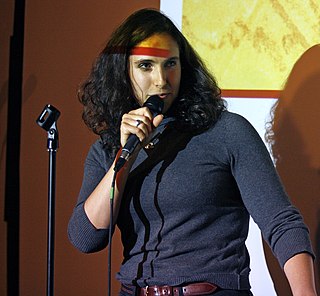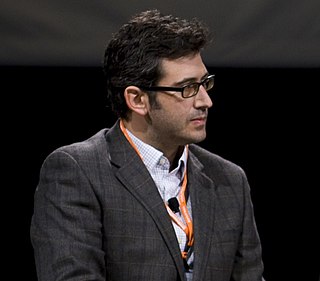A Quote by Jay Chandrasekhar
We write and write and write until we think, 'If we have to shoot this script, we'll be happy, and it's going to be a great movie.' I meet with all the actors two weeks before, and I ask them, 'What lines don't work? What is uncomfortable for you? What jokes do you think aren't good? If you're not getting it, here's what the joke is.' You fix it.
Related Quotes
Any negative review you write, they'll say, "Oh, you're being so mean." I think the problem with a lot of criticism is that too many critics either write just description or they write in a Mandarin jargon that only a handful of people can understand, or they write happy criticis - everything is good that they write about. I think that's really not good. I think it's damaged a lot of our critical voices.
Mostly, in song writing, my experience is that there isn't so much inspiration as hard work. You sit there for hours, days and weeks with a guitar and piano until something good comes. But the urge to write is something you have to have. A conviction, an ambition to write and never stop until you think, 'This is the best I can do.'
To develop your own voice, you have to keep writing a ton, and this is something where I think Twitter is helpful. I use it to write a ton of jokes. You have to write a ton of bad stuff before you know what you're good at. And that's what some people I think have trouble with, the thought of getting past the bad stuff.
People can write jokes five minutes after a major world event happens, and have hundreds of thousands of people read them within 10 minutes. Whereas before you write a joke, you don't know if anybody is really touching on it or not, and you tell it onstage the next night. For joke writing it has changed things.
As soon as I start to write I'm very aware, I'm trying to be aware that a reader just might well pick up this poem, a stranger. So when I'm writing - and I think that this is important for all writers - I'm trying to be a writer and a reader back and forth. I write two lines or three lines. I will immediately stop and turn into a reader instead of a writer, and I'll read those lines as if I had never seen them before and as if I had never written them.
I don't write as much now as I used to, but I write. The lines still come, maybe periodically, and I'll go through these little bursts of time where I write a lot of things then a long period of time where maybe I don't write anything. Or these lines will come into my head and I'll write 'em down in a little book, just little sets of lines, but I won't try to make stories or poems out of them. I'm doing a lot of that now, just the lines.




































